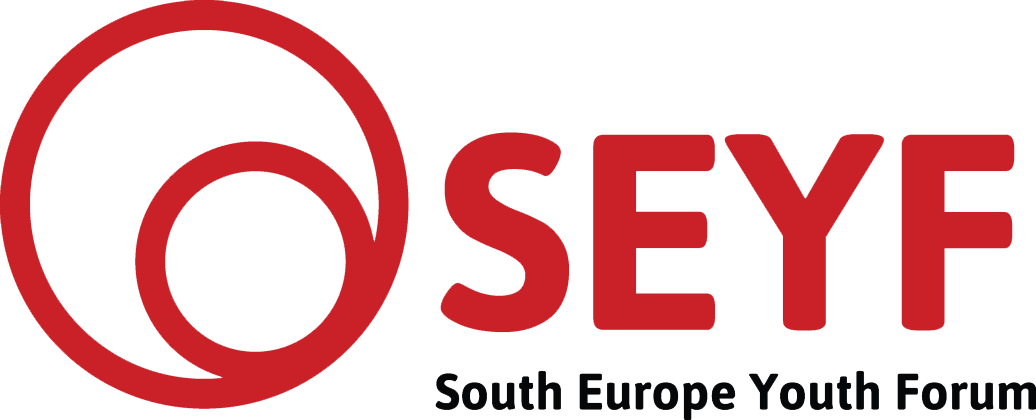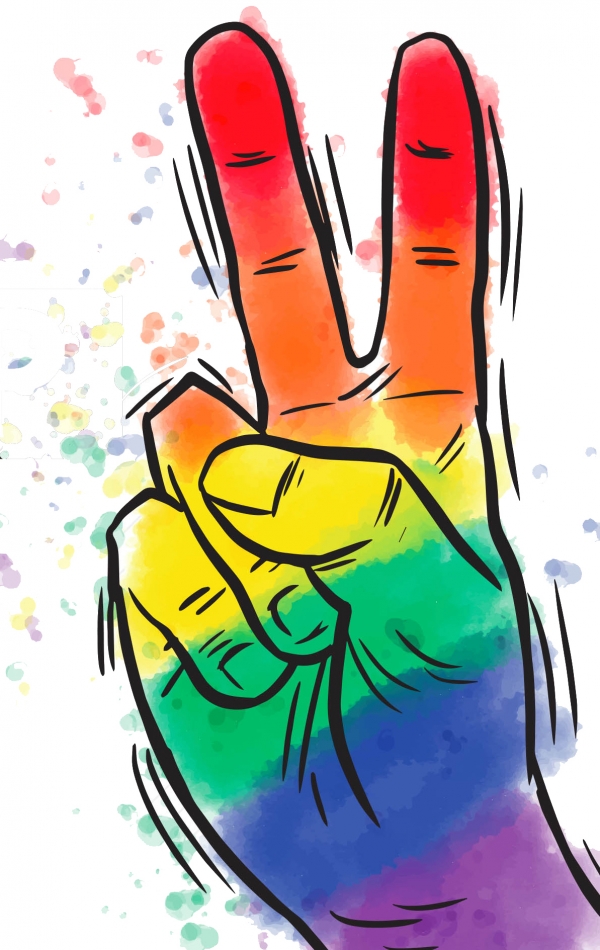![]()
Mind the Gap è un progetto promosso da SEYF e supportato dall'Agenzia Nazionale per i Giovani nell'ambito del programma Europeo Erasmus Plus. Il progetto è stato realizzato col patrocinio di UNAR - Ufficio Antidiscriminazioni Razziali e in collaborazione con LeA - Liberamente e Apertamente, Salento Rainbow Film Fest, LINK Lecce, Officine Cantelmo e LILA Lecce
Il progetto è nato in seguito all'esigenza di creare una coscienza e una solida rete di lavoro riguardo ai diritti LGBT* nell'area del Mediterraneo.
Dopo aver scambiato idee ed esperienze coi partner, con riferimento alle azioni portate avanti in ambito Euromediterraneo, abbiamo immaginato di programmare un’azione di approfondimento e supporto della comunità LGBT*, un’azione che potesse rispondere alle reali necessità di noi operatori giovanili considerando le molteplici forme di discriminazione e violenza perpetrate in questo contesto geografico per ragioni di orientamento sessuale. Negli ultimi due anni, abbiamo analizzato come nella maggior parte dei casi i giovani e gli youth worker abbiano una scarsa consapevolezza rispetto alle dinamiche di discriminazione e violenza per orientamento sessuale.
Abbiamo lungamente lavorato per superare ostacoli burocratici (in molti dei paesi partner l’omosessualità è considerata come illegale e con questa anche la liberta di associazionismo di stampo LGBT) e abbiamo iniziato a cooperare per pianificare le azioni di Mind the Gap.
Come progetto Multiazione, Mind the Gap è stato ospitato a Lecce e ha coinvolto 10 paesi dell'area Europ-Mediterranea: Italia, Francia, Malta, Spagna, Grecia, Tunisia, Israele, Marocco, Giordania e Turchia).
Nello specifico sono stati implementati:
- un Corso di Formazione dal 25 al 29 ottobre 2016 che ha coinvolto 3 partecipanti per partner (youth leaders, youth workers and social workers);
- uno Scambio di Giovani dal 2 al 10 Dicembre 2016 che ha coinvolto 4 partecipanti con minori opportunità più un leader group per ogni partner.
“Mind the Gap” ha ruotato attorno i seguenti obiettivi:
- durante il Corso di Formazione: sviluppare competenze e conoscenze degli operatori giovanili al fine difendere l’inclusione dei membri della comunità LGBT nelle rispettive realtà usando strumenti propri della metodologia non formale;
- durante lo Scambio di Giovani: testare la validità degli strumentie delle metodologie acquisite durante il TC in occasione di un programma trasversale all’azione locale del Salento LGBT Fest.
Coerentemente con il programma Erasmus+, durante tutto il progetto, tutte le metodologie hanno promosso la partecipazione e l’apprendimento attivo dei partecipanti, utilizzando metodologie di apprendimento partecipativo, esperienziale e non formale: brainstorming, team building, energizers, presentazioni, world café, dibattiti Open Space, laboratori.
A conclusione del progetto i partecipanti hanno una campagna di comunicazione offline e online sui temi di progetto. La campagna è stata testata e il materiale disseminato durante il Salento Rainbow Film Fest.
I risultati del progetto sono stati veicolati attraverso un Hand-Book che è stato creato e includerà input teorici sul topic, informazioni sulle discriminazioni di genere nei 10 paesi e strumenti che potranno essere utilizzati da altre associazini per promuovere la gender equality in differenti contesti territoriali.
In una prospettiva di lungo termine il nostro progetto ha lavorato affinché i giovani e gli youth worker coinvolti diventassero più consapevoli e sensibili per essere in grado di rilevare situazioni e contesti in cui si verificano discriminazioni di genere per poi agire in maniera appropriata per promuovere la parità dei membri della comunità LGBT sia a livello locale, nazionale così come in contesti del bacino Euro-Mediterraneo.
Aumentando la conoscenza, cambiando gli atteggiamenti, lo sviluppo di competenze e l'acquisizione di strumenti innovativi, le organizzazioni partner e partecipanti provenienti da paesi UE e dell'area Mediterranea (Nord Africa e Medio Oriente) sono in grado di coinvolgere i giovani verso un percorso di promozione dei valori comuni europei, in linea con gli obiettivi generali del programma Erasmus Plus.

![]()
As a multi-action project, the project Mind the Gap took take place in Lecce (Italy), and involved participants from 10 countries of the Euro-Med Area: Italy, France, Malta, Spain, Greece, Tunisia, Israel, Morocco, Jordan and Lebanon.
It has been organized by SEYF with the support of the Italian National Agency for Youth within the frame of the Erasmus Plus Programme and in cooperation with: UNAR (the Italian National Office against Racial Discrimination managed by the Department for Equal Opportunities of the Italian Presidency of the Council of Ministers), and the local NGOs LeA - Liberamente E Apertamente, Salento Rainbow Film Fest, LINK Lecce, Officine Cantelmo and LILA Lecce.
Specifically:
- A Training Course implemented from 25th to 29th October 2016 which involved 2 trainers + 3 participant from each partner. A total of 30 youth leaders, youth workers and social workers) have been involved;
- A Youth Exchange implemented from 2nd to 10th December 2016 which involved 4 participants with fewer Social opportunities +1 leader group for each partner: A total of 50 young people have been involved;
Mind the Gap followed the following specific objectives:
- in the Training Course phase: to develop the competences and knowledge of people working with youngsters in order to act as advocates of greater gender equality in their communities by using non-formal learning approach and tools;
- in the Youth Exchange phase: to test the effectiveness of the tools and metodologies acquired during the Training Course phase during the cooperation and the participation to Salento Rainbow Film Festival.
Coherently with the programme Erasmus+, during the Training Course and the Youth Exchange, all methodologies promoted active participation and active learning of participants.
The Training Course was based on learning by doing methodology: participants learnt about non formal education by experiencing it directly and not by just by receiving information. Anyway, information sessions have also been integrated during the whole project in an interactive way. The main methodological approaches used were: Reciprocal Maieutic Approach, experiential learning, cooperative learning, participation and peer learning. The main methods we implemented were: brainstorming, team building and energizers, presentations, world café, Open Space Technology.
The Youth Exchange was based on specific and targeted activities based on learning by doing methodologies. During the Youth Exchange, participants create different kinds of communication material on the topic that have been tested and disseminated during the Salento Rainbow Film Festival. In order to produce this material the project foresaw the following activities: workshops of mutual dialogue, exchange of personal realities in terms of discrimination against LGBT* people, group discussion, thematic workshops for the creation of the campaign, role plays, simulation games, problem solving, visit to LGBT* Realities working in Lecce, specific activities used as a group dynamic in order to find common points about the violation of the rights of LGBT* people and to stimulate the creation of new ideas and follow ups.
The result of the Training Course phase were the current Training Hand-Book which includes the most crucial theoretical inputs on the topic, information about the gender issues in our 10 countries and also tools that could be used for promoting gender equality at the local level. We hope that the results of our project could be used also in other youth-work contexts and in different communities, as we tried create it in a simple language and to design it in a youth-friendly way.
The result of the Youth Exchange have been a campaign against the Homophobic Speech that is integrating all our daily campaigns, in line with the international campaign of the No Hate Speech Movement.
In a longer-term perspective we expect the young people and youth workers involved to be more gender-aware and sensitive, in order to be able to detect situations and contexts where gender-based discrimination and violence occur and to take proper action for promote gender equality both locally, nationally as well as in European and in South Mediterranean contexts.
By increasing knowledge, changing attitudes, developing skills and acquiring innovative tools, we expect the partner organizations and participants from European and South Mediterranean Countries to be able to involve young people in being change-makers.
Watch out the photo of Mind the Gap!
Read our publication on LGBT* rights in the EU-MED Countries!
Press Release:
* FuturaTv
* TrNews
* TeleRama


